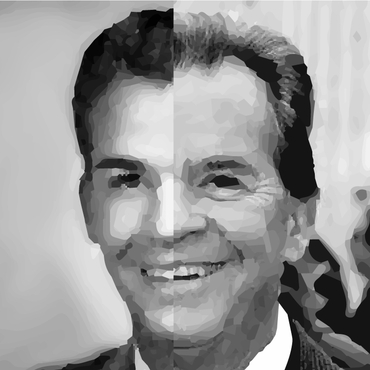
by Steven N. Austad, Ph.D. - Scientific Director, American Federation for Aging Research (AFAR) , Distinguished Professor and Chair, Department of Biology, University of Alabama at Birmingham
Dick Clark's New Year's Rockin' Eve has become an American institution. For decades, millions have tuned in to welcome the New Year with the former host of American Bandstand. And many of us have always wondered: why did it look like Dick Clark never aged?
For decades, his appearance never seemed to change. When I was a teenager, he looked like an old man of 25 or so. When I was in my 40's, he looked like a whippersnapper of 25 or so. So far as I could tell from the photos published with his obituary, he still looked 25 or so to the very end.
An interesting question that people like Dick Clark make you ponder is whether looking young means you're physically staying young. Call it the Dick Clark effect.
In a recent study published in the Journals of Gerontology, Danish scientist Kaare Christensen ingeniously tested it by taking simple passport style photographs of nearly 500 pairs of same sex Danish twins 70 years old or older. He then asked a group of nurses to look at all the photos and guess the age of each person. On one day they looked at all the photos of one twin of each set, on another day all the other twins.
Several years later, when a significant number of the twins had died, he found surprising support for the Dick Clark effect. Averaging all the nurses' age guesses, the twin who looked older turned out to be more likely to die first. In fact, in his analysis looking a year older was more hazardous to one's health than actually being a year older. Christensen thought that because of the nurses' experience with sick people they might be especially good at picking up subtle signs of ill health, so he repeated the experiment with a group of lay people doing the age estimates. They did just as well at predicting who would die first as the nurses.
Understanding why some people look young (or old) for their age is complicated. It involves genetics, of course. When will your hair turn gray or fall out? When will you gain your share of weight or wrinkles? For the identical twins, though, genetics shouldn't be an issue. They are after all genetically identical. Yet the older looking identical twin died first most of the time.
Not surprisingly, it also involves lifestyle. Was one twin more dissipated than the other? Did one exercise more? Eat more veggies? Experience more stress? For whatever reason, we humans seem to be pretty good at assessing relative health even from a simple photograph. The human brain is remarkable at recognizing patterns even if we are not aware of them. It would be intriguing to see how much (if any) better we might do if instead of only seeing a photograph we could also hold a brief conversation with each twin or watch them walk across a room.
Some studies have shown that walking speed in older people has been statistically related to how soon they are likely to die too, and technologies are even being developed to see if computers can do as well, or perhaps even better, at assessing your health than the human brain.
This is an exciting time in aging research. A multitude of medications are ready for testing to see whether they can extend healthy life. Would they keep you looking younger as well?
How about Dick Clark himself? The average American man dies at about 77 years of age these days. Dick Clark lived to age 82. So he seems--at least in a small way--to have embodied the Dick Clark effect. My personal favorite living example though is baseball announcer, Vin Scully, who retired from the broadcasting booth this October, not looking not all that different from when he started his professional career some 67 years ago. Vin, we want to know your secret.

